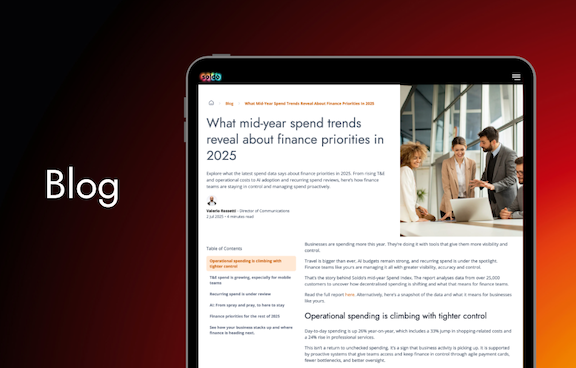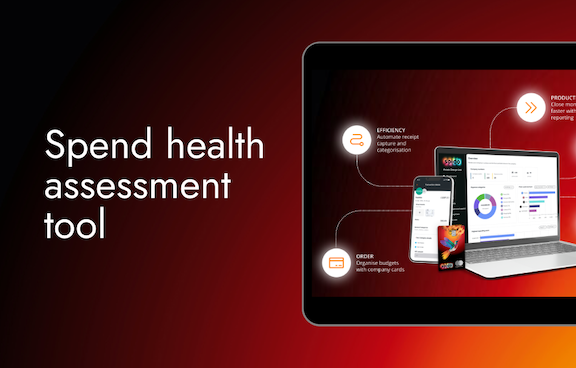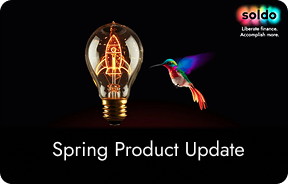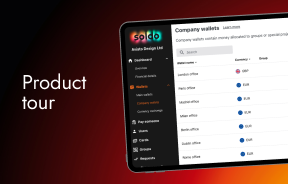Episode Summary
When Sharon Virag became Chief Accounting Officer of customer service software company Genesys, she had already worked for Fortune 500 companies including General Electric, and served as CFO for NeoGenomics Laboratories.
But for Sharon, who loves building out company infrastructure, working with an emerging organization like Genesys was just as intriguing and exciting.
With her help, the company has grown and hit financial milestones. Highlights include navigating new regulations and financial reporting requirements, and building strong, diverse teams that work in lockstep with one another.
Sharon believes that working on your leadership habits is one of the most important things you can do as a financial chief. This means knowing when — and how — to speak your mind, and figuring out how to delegate tasks to your team, so you can let go of some of the details and see the full scope of the company’s needs.
Finding passion in her work is also really important to Sharon. Throughout her extensive career, one of the lessons that has stuck with her most is that focusing on the things that you love doing is always more meaningful than treating your life and career as a ladder that you constantly need to climb.
On this episode of The CFO Playbook, Sharon talks about her strategy for being a flexible leader, when to think big picture, and how to work with the systems you have to manage your company’s finances with ease and efficiency.
Guest Analysis
Name: Sharon Virag
What she does: Sharon brings her extensive experience helping global organizations optimize processes, manage talent and improve internal controls to her role as Chief Accounting Officer at Genesys.
Key Quote: “At this point in my career, it’s not about how high up the ladder I can get, it’s really about how I can continue to learn every day.”
Where to find Sharon: LinkedIn
From Sharon’s Playbook
Speak your mind, but do it with respect.
Sharon says that over the course of her career, she’s learned to speak her mind even if she thinks people will disagree with her — something that can be particularly challenging for women in male-dominated industries. But she makes sure to note that it’s just as important to make sure your candor isn’t being expropriated by a harsh tone: if you want to get your point across, it’s best to go about it lightly.
A flexible leadership style will go a long way with your team.
As Sharon has grown as a leader, she’s become more comfortable speaking with authority to her team members. But she recognizes that an authoritative leadership style doesn’t work for everybody, and that doesn’t mean they aren’t right for your team. If you value diversity — which you should — it’s imperative to adapt to different work styles.
Leaders need to let go of nitty-gritty details in order to see the big picture.
When Sharon joined Genesys, the company was in hyper-growth mode, and she worked down in the operational weeds to help them get ready for their next stage. Eventually, though, she knew she had to give up some of these responsibilities, and allow other members of the team to take over. This can be hard: if you can do something quickly and well, why give the task to someone else? But as a leader, it’s your responsibility to learn to delegate these tasks, so you can see the company from a top-level perspective.
Financial and technical systems are essential in a world of changing financial regulations.
To Sharon, one of the most important parts of managing a financial team — whether it’s for a Fortune 500 company or a quickly growing startup — is having systems in place to set you up for success. Different systems work better for different organizations, so it’s up to you to decide which to implement for your company. Whatever you choose, keeping all branches of your business in lockstep will be key to a smooth and efficiently run company.
Episode Highlights
The balance between frankness and rudeness
“Finding the right way to say what you think so people hear you and are not offended or shocked, but are listening and open to what you have to say, is the super hard part, and what we’re all striving for. There are people who have so much to add to every topic, but their voices are so harsh in that moment that you can’t hear them: all you hear is the strident tone.”
The importance of diversity
“In my mind, the most important reason for diversity is the value of what this tapestry of different opinions, backgrounds and viewpoints brings to the discussion. It’s all interwoven with bringing all these folks together, and helping to make sure those voices are realized. I once told someone they were a great diversity leader, because so many people said they loved working for him. And he said, No, I’m just a great leader, because everyone should have a voice. That’s one of the most important things somebody has said to me.”
On being a leadership chameleon
“You have to be a chameleon and be willing to change for different individuals. Every once in a while, people who work for you want to hear you talk in an assertive, authoritative voice. And then there are people who you would never get the best out of if you were to speak to them that way. You have to find the voice that works for them. I started out my career with one tone for everybody, but I learned that does not work, and you’re short-selling yourself and your team by doing that.”
Preparing your team for delegation
“When you are learning to delegate, it’s all about putting in the time to make sure your team members are ready for that moment in the sun. You show them once, then you step back and watch them do it, and then you let them go and be successful. If people have bad experiences, maybe they didn’t put the time into readying their team, and then it was a big disaster and a painful recovery. It’s about preparing your team for that moment where you’re going to delegate and step back.”
Matching the systems to the company’s needs
“I worked at these big Fortune 500 companies, like General Motors and General Electric, and one of the things I learned was they all do everything differently. So I’m very big on taking what we have today and figuring out if we can optimize it. I don’t tend to change things just to match what I’m used to seeing, because I’ve seen so many different things be successful over time. I really believe in getting to the bottom of it, looking at the controls and the process. If it’s OK, don’t break it just to break it.”
The importance of a solid IT-Finance partnership
“Things were changing so fast when SOX compliance requirements were first being implemented, and the expectation around financial reporting was changing rapidly. All of us were forced to get into the details of the systems to make sure we were maximizing the control structure of the accounting systems. The partnership with IT is just as important as having that baseline knowledge yourself, in order to make sure your tools fit within the IT infrastructure, and that you’re partnering very closely.”
Balancing passion with career growth
“Sometimes you have to just decide to do something because it’s for best for your career, but always keep in mind what you really enjoy and make sure you’re prioritizing that. You don’t want to get to the end of your career and realize that you never found that thing.”
Top quotes:
“Something that carries me forward in all the projects I work on is my willingness to say, I have a point of view and I think it’s the right one.”
“To get your folks where they need to be to take on additional responsibility, you have to put in the time to teach them, and then step back, let them fail, and help them through it.”
“It’s never pretty when IT and finance aren’t in lockstep. You can accomplish so much more when you have made that partnership really solid.”
“It took some soul-searching to really understand that what I enjoy doing is building infrastructure. Fortunately I had a little bit of time off, and I was clear-headed enough about my own career to say, Gosh, I really love doing that.”

















